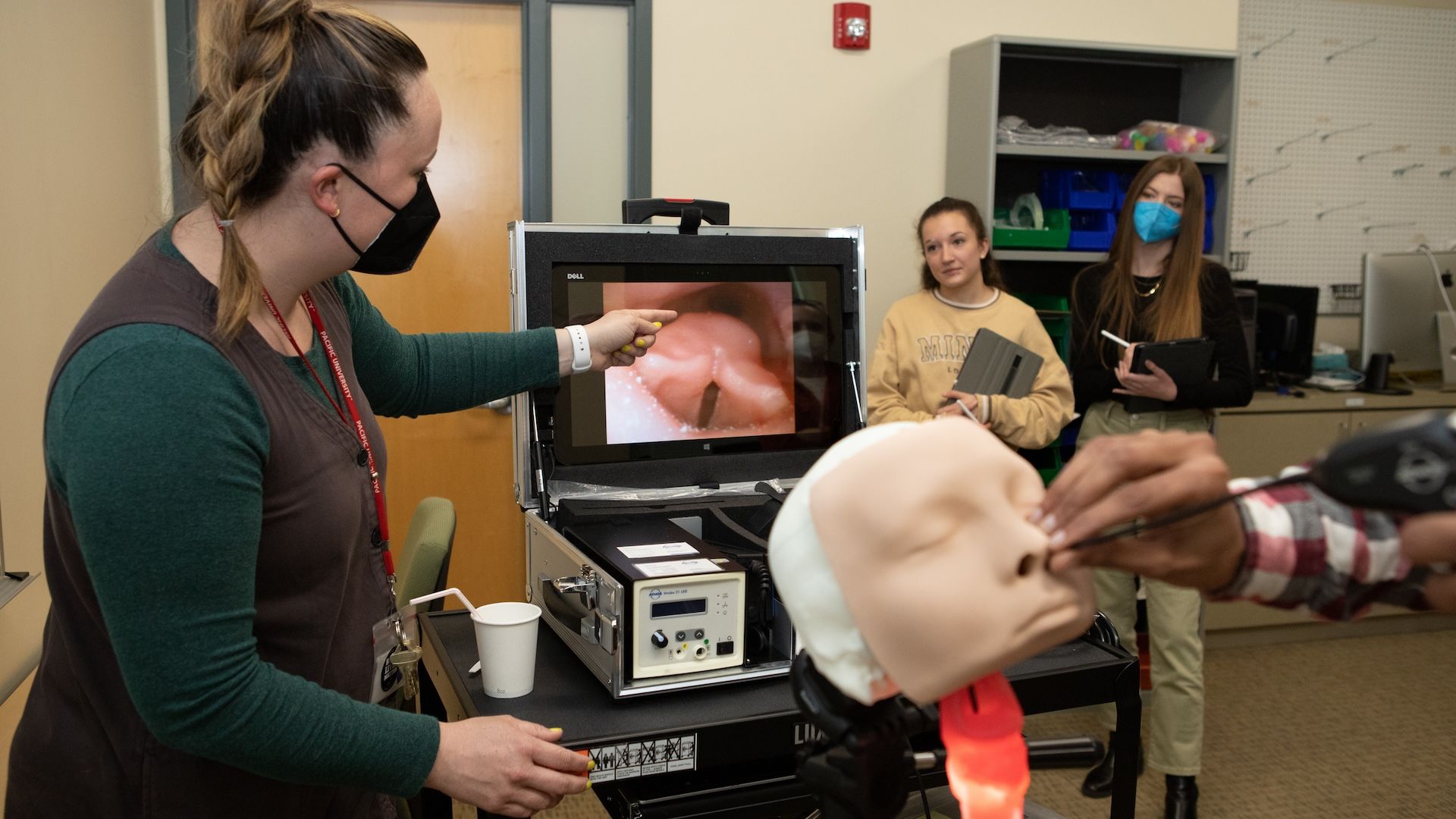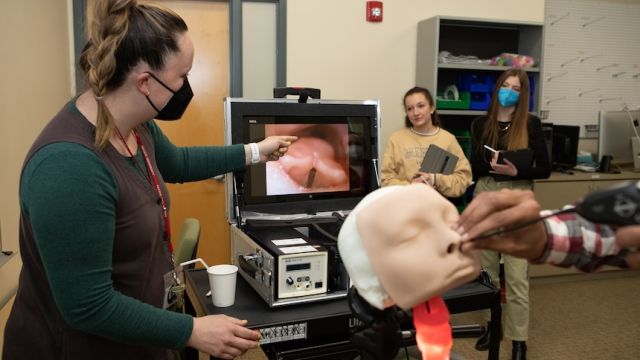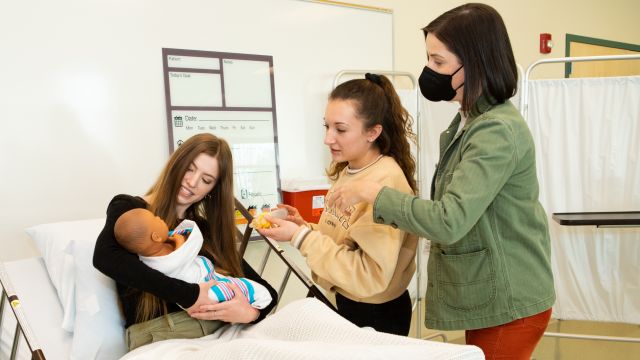Speech-language pathology is a dynamic profession with a focus on serving individuals with communication and swallowing disorders across the lifespan.
Speech-language pathologists work in a variety of settings ranging from neonatal intensive care, to early intervention, preschool through high school educational settings, medical and rehabilitation settings, long-term care, hospice, and in research. Opportunities for employment are excellent and expected to grow.
Program & Requirements
Speech-language pathology blends knowledge of the sciences, social sciences, and humanities and requires professionals to demonstrate attention to detail, professionalism, excellent communication skills, flexibility, and curiosity.
Entry-level practice in speech-language pathology requires a graduate degree. Applicants to graduate programs come from a broad array of majors and minors including, but not limited to, exercise science, psychology, cognitive or neuroscience, education, public health, social work, music, languages, biological sciences, anthropology, linguistics, and more!
Pacific University offers an undergraduate minor in communication sciences and disorders. The minor is excellent preparation for any career particularly in education or any health-related profession. The minor, together with core requirements (see below), prepares students to apply as candidates for graduate programs in speech-language pathology or audiology.
Prerequisites
An earned bachelor's degree is required for application to graduate programs in speech-language pathology.
In addition to an undergraduate degree, applicants meet a number of pre-requisite courses. All graduate programs in the US adhere to the American Speech-Language Hearing Association requirement of at least one course in each of the following areas:
- biological science,
- physical science,
- social or behavioral science, and
- statistics
Each program may set specific preparatory coursework requirements so students should check with graduate programs of interest well ahead of application. Typical requirements for preparatory coursework include: phonetics, language acquisition, anatomy and physiology, speech and/or hearing science, audiology, aural rehabilitation, and neuroanatomy/neurophysiology. View the prerequisites for Pacific's MS in Speech Language Pathology program.
The minor in communication sciences and disorders provides the preparatory coursework for application to the Pacific University MS in speech-language pathology program.
Preparation for Application to Graduate Programs
It is important that students with interest in a career in speech-language pathology understand that admission to graduate programs is a highly competitive environment.
A minimum of a 3.25 GPA (on a 4.0 scale) in relevant coursework and in the last 60 semester credit hours of study (including post-baccalaureate or graduate areas of study, if any) is strongly recommended. Meeting this minimum does not guarantee admission into a graduate program.
Three letters of recommendation are also required. Typically at least one or more letters should come from a faculty member who has taught you in a college-level course and can speak to the likelihood of your success in a graduate program.
Evidence of a strong commitment to pursuing a career as a speech-language pathologist is essential. Volunteer experiences in speech-language pathology or with relevant populations of individuals often served by speech-language pathologists is strongly recommended. Supervised observation hours are also required (and typically started or met through course registration).



